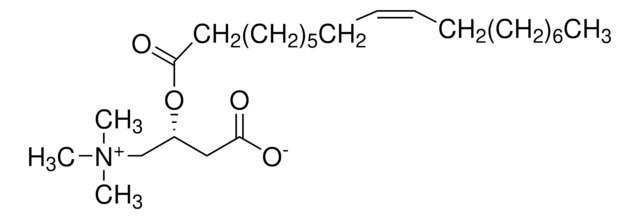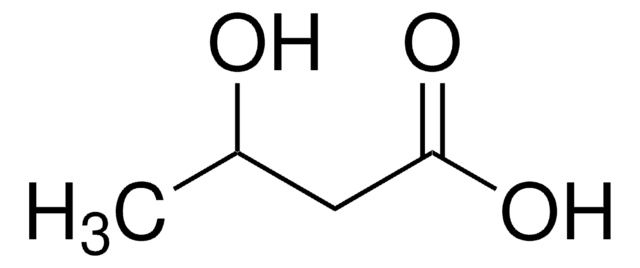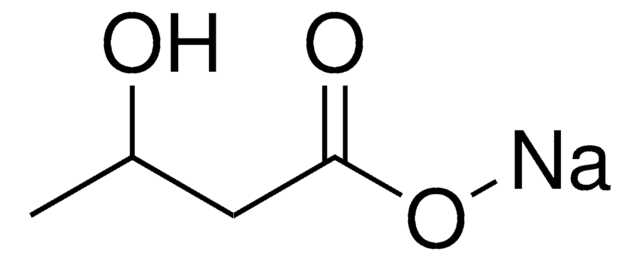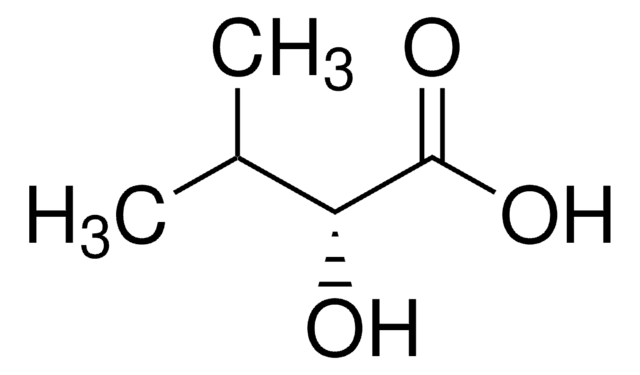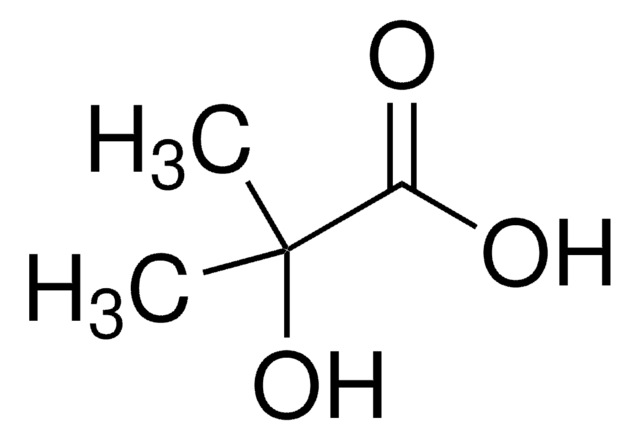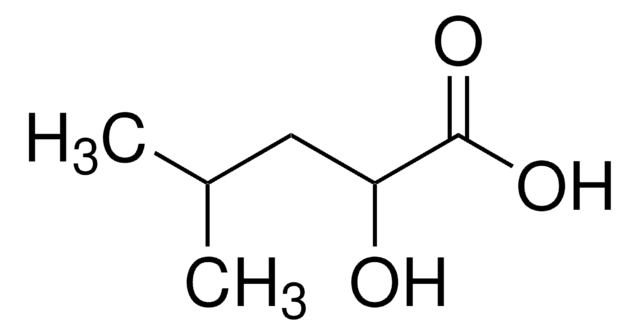About This Item
Fórmula empírica (Notação de Hill):
C4H8O3
Número CAS:
Peso molecular:
104.10
Beilstein:
1720939
Número MDL:
Código UNSPSC:
51113400
ID de substância PubChem:
NACRES:
NA.22
Produtos recomendados
Ensaio
≥97.0% (T)
forma
solid
pureza óptica
enantiomeric ratio: ≥99:1 (GC)
pf
50-54 °C
temperatura de armazenamento
2-8°C
cadeia de caracteres SMILES
CC[C@@H](O)C(O)=O
InChI
1S/C4H8O3/c1-2-3(5)4(6)7/h3,5H,2H2,1H3,(H,6,7)/t3-/m1/s1
chave InChI
AFENDNXGAFYKQO-GSVOUGTGSA-N
Outras notas
Chiral building block
Palavra indicadora
Danger
Frases de perigo
Declarações de precaução
Classificações de perigo
Eye Dam. 1 - Skin Irrit. 2 - STOT SE 3
Órgãos-alvo
Respiratory system
Código de classe de armazenamento
11 - Combustible Solids
Classe de risco de água (WGK)
WGK 3
Ponto de fulgor (°F)
Not applicable
Ponto de fulgor (°C)
Not applicable
Equipamento de proteção individual
dust mask type N95 (US), Eyeshields, Gloves
Escolha uma das versões mais recentes:
Já possui este produto?
Encontre a documentação dos produtos que você adquiriu recentemente na biblioteca de documentos.
Os clientes também visualizaram
K.J. Hale et al.
Tetrahedron Letters, 36, 6965-6965 (1995)
M N Romanelli et al.
Chirality, 8(8), 579-584 (1996-01-01)
The enantiomers of 3-alpha-tropyl 2-(phenylthio)butyrate (SM32, 1) were prepared by chiral synthesis and tested for analgesic, cognition-enhancing, and ACh-releasing properties. They show enantioselectivity in some of the tests, the eutomer being related in configuration to R-(+)-hyoscyamine.
M N Romanelli et al.
Chirality, 8(3), 225-233 (1996-01-01)
The enantiomers of two alpha-tropanyl esters, SM21 (1) and PG9 (2), derived from (+)-R-hyoscyamine, that act by increasing the central cholinergic tone, were obtained by esterification after resolution of the corresponding racemic acids [(-)-S-1, (-)-R-2 and (+)-S-2] and by stereospecific
Si Jae Park et al.
Applied microbiology and biotechnology, 93(1), 273-283 (2011-08-16)
We have previously reported in vivo biosynthesis of polylactic acid (PLA) and poly(3-hydroxybutyrate-co-lactate) [P(3HB-co-LA)] employing metabolically engineered Escherichia coli strains by the introduction of evolved Clostridium propionicum propionyl-CoA transferase (Pct(Cp)) and Pseudomonas sp. MBEL 6-19 polyhydroxyalkanoate (PHA) synthase 1 (PhaC1(Ps6-19)).
Philip J Saylor et al.
Clinical cancer research : an official journal of the American Association for Cancer Research, 18(13), 3677-3685 (2012-05-17)
Androgen deprivation therapy (ADT) for prostate cancer causes an increase in fasting insulin and adverse changes in body composition and serum lipid profile. It is unknown what other metabolic alterations are caused by ADT. To better characterize the metabolic effects
Nossa equipe de cientistas tem experiência em todas as áreas de pesquisa, incluindo Life Sciences, ciência de materiais, síntese química, cromatografia, química analítica e muitas outras.
Entre em contato com a assistência técnica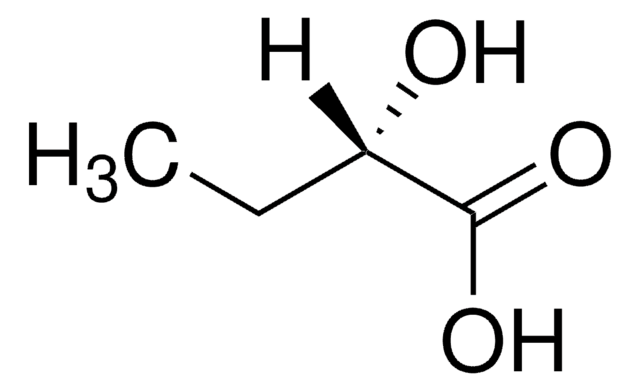
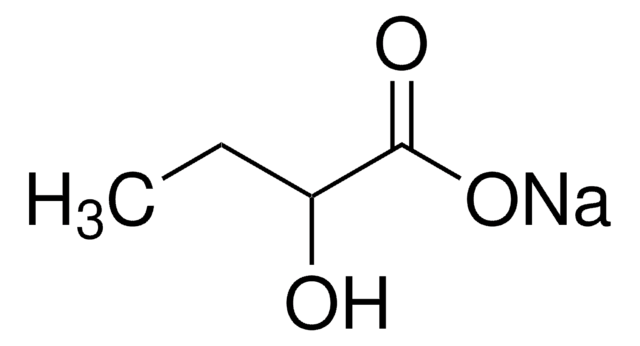

![[(3R)-3-Hydroxybutyryl]-L-carnitine analytical standard](/deepweb/assets/sigmaaldrich/product/structures/658/500/ff9570f8-a346-4077-9983-d0e67400bf47/640/ff9570f8-a346-4077-9983-d0e67400bf47.png)
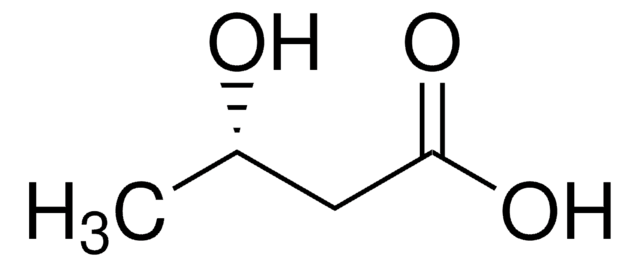
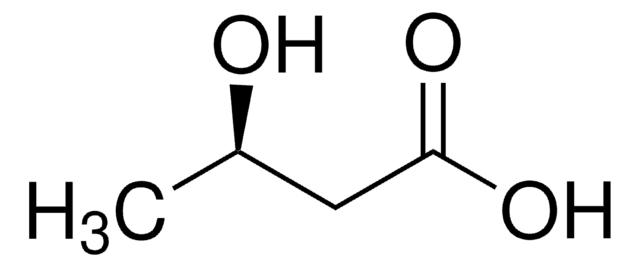
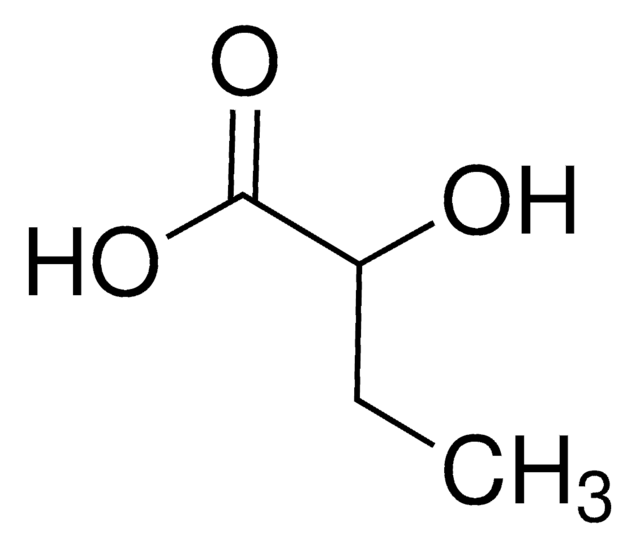
![[(3R)-3-Hydroxyoctadecanoyl]-L-carnitine analytical standard](/deepweb/assets/sigmaaldrich/product/structures/195/646/9c581614-9449-4107-a05e-7c573a907483/640/9c581614-9449-4107-a05e-7c573a907483.png)
